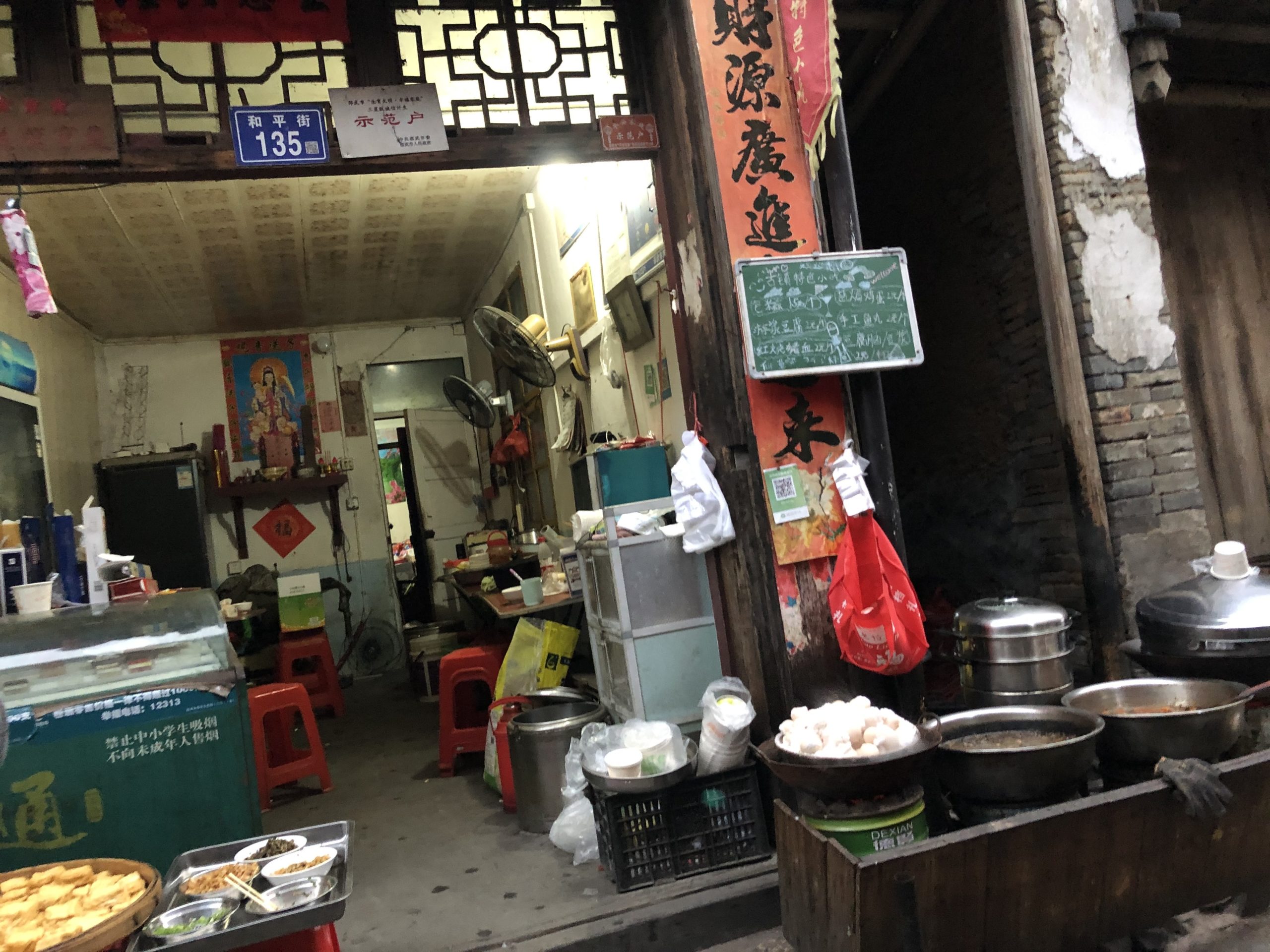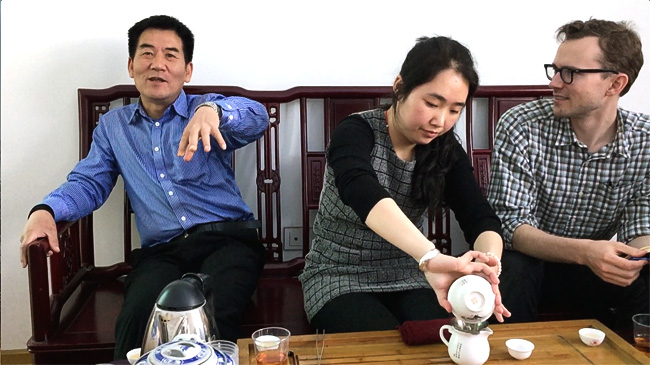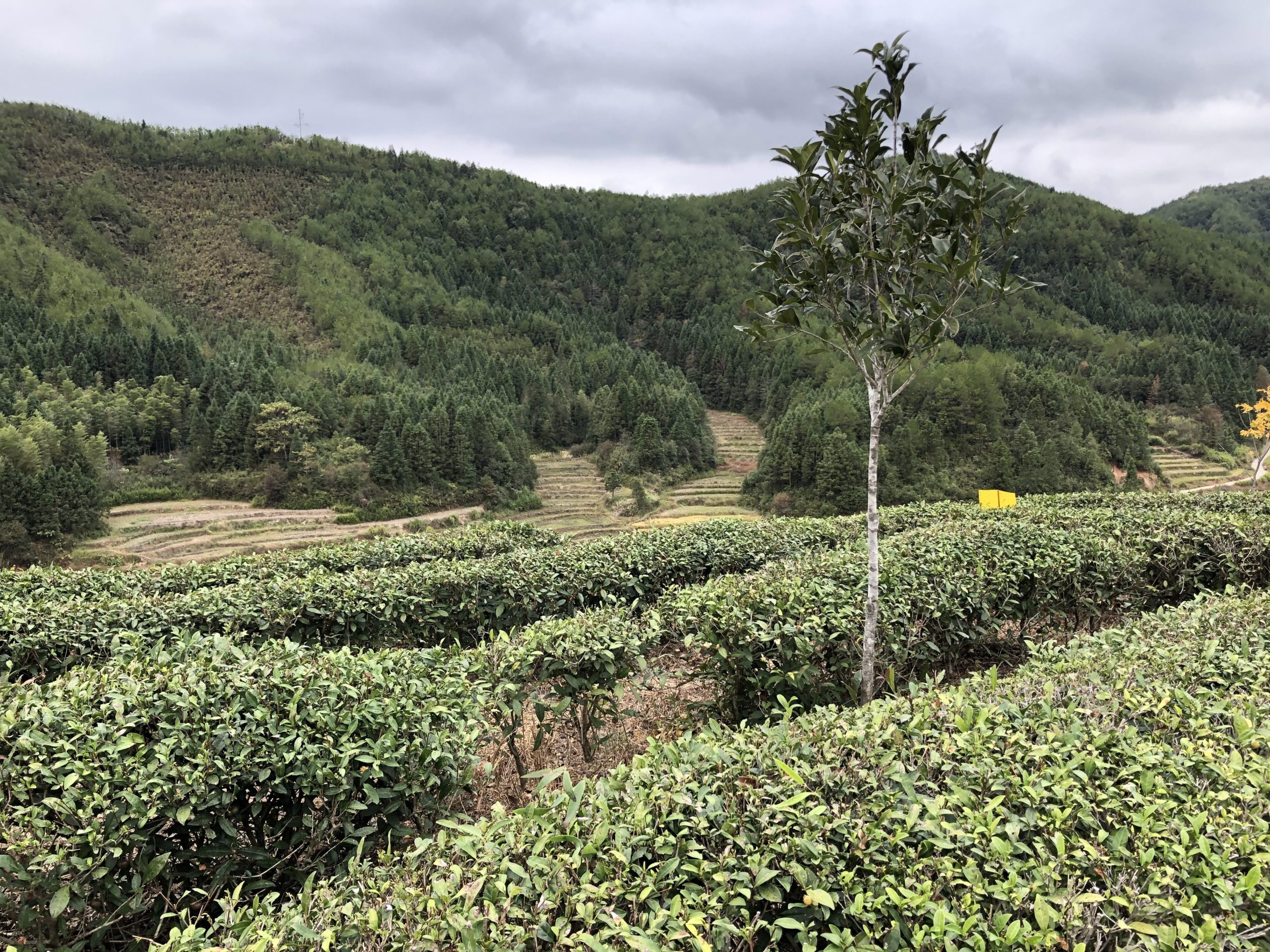Newsletter Archive Aug. 20, 2021

This weekend we’re featuring Baihao Yinzhen (Silver Needle) as well as Moli Longzhu (Jasmine Pearls). Both of these teas are made with the same tea bush cultivar, but produced in different parts of Fujian and under the expertise of different tea makers. Silver Needle was made by “Old” Chen Qingwen, a producer we especially love working with.
Old Chen has a strong opinion on what makes good tea. He’s got passionate takes on good food, too. When you visit his tea factory in Shaowu, you’re just as likely to get a tour of the best local eateries in Heping, Shaowu, and Jianyang as you are to tour his tea gardens in those areas. He’s enthusiastically dragged us into tiny by-the-wayside restaurants with excellent local cuisine a number of times. In Old Chen’s opinion, food and tea should speak for their origin. Their flavors are as much born from the local soil and climate as they are from the traditions and tastes of the local people.
Maybe that’s why there’s something different about his Silver Needle.

Silver Needle White Tea is traditionally grown with Fuding County’s Dabai and Dahao cultivars. Endemic to Fujian Province, these cultivars have spread across China because they make delicious and beautiful tea. They are not always processed as white tea, however. Jasmine Pearls, for example, uses leaves from these cultivars to make green tea that’s then scented with fragrant jasmine flowers. Even in the places that make the traditional white tea from the Dabai and Dahao tea cultivars, there’s still variation in how they like to do it.
Old Chen makes Silver Needle according to the Jianyang local preference. To start, the climate in this part of Fujian is cooler, making for a later spring harvest of small, dense tea buds. When those first tea buds of the year grow, they are not picked until their first leaf just barely begins to separate from the bud. At this stage of maturity, their flavor is considered to be at its peak. Traditional processing of Silver Needle in Fuding usually peels off that first slightly-opened leaf. Old Chen adheres to the Jianyang tradition of keeping that first leaf attached to the bud. The result is Silver Needle with uncommon intensity and richness. We think you’ll like it.

